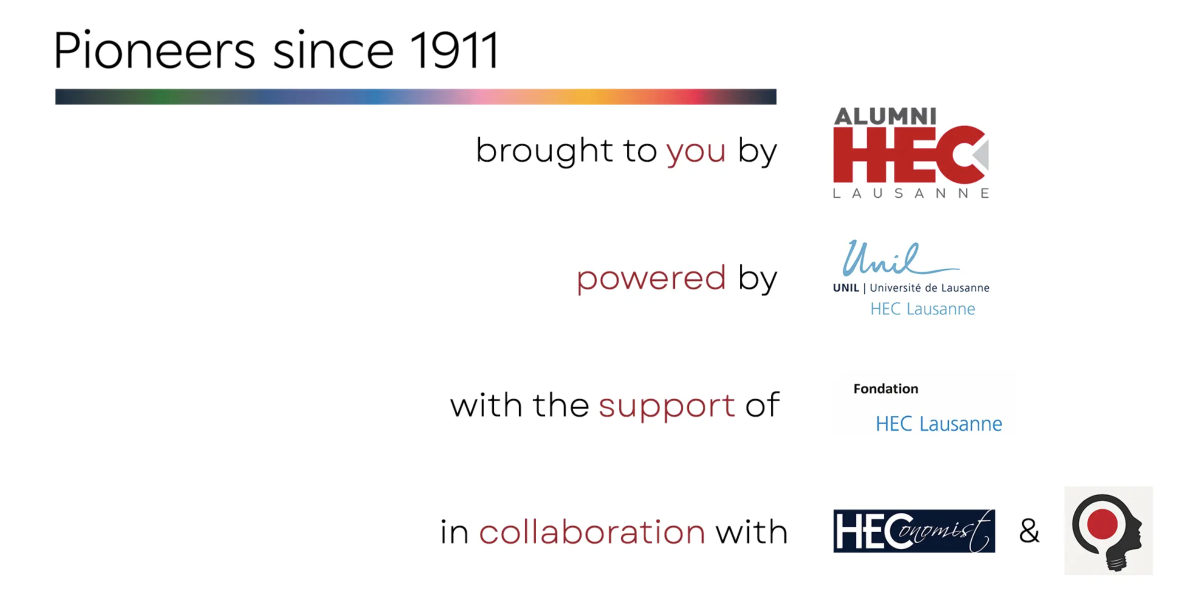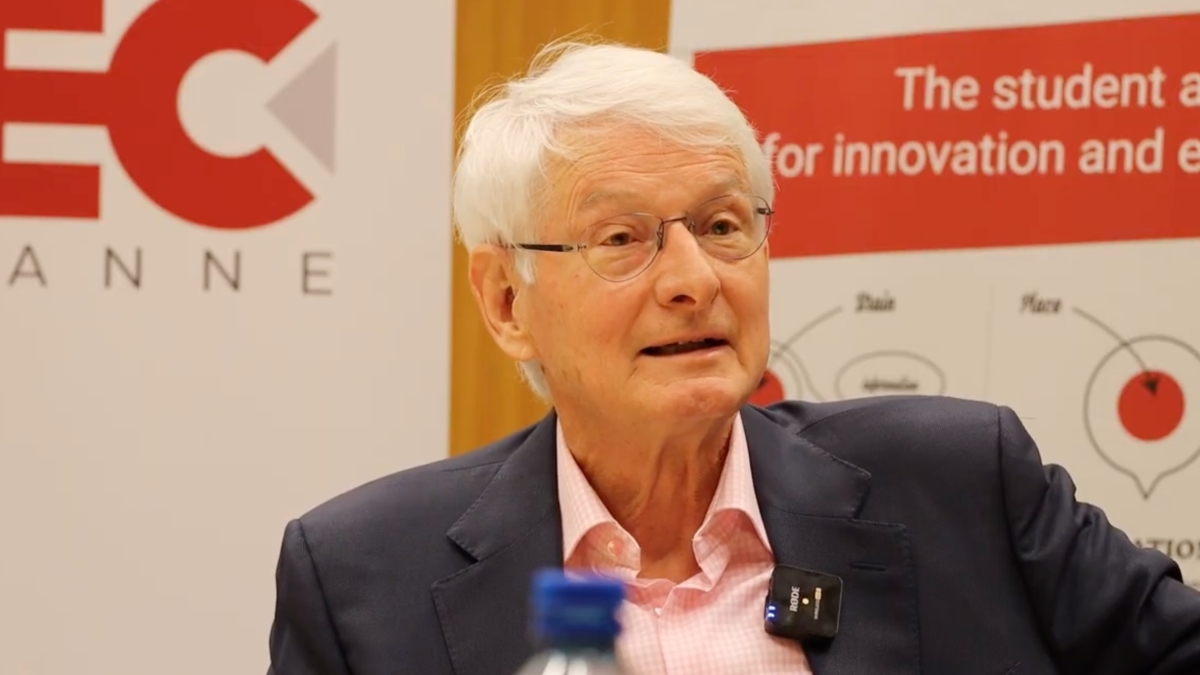14.05.2025
Special Report > Léon Walras - HEC - Taxation
The Role of Taxation Today: Interview with Professor Danthine
As part of the Pioneers since 1911 Project on taxation—which began with an exploration of the archives and the (re)discovery of Léon Walras’s legacy—this is the second part of our special feature, focusing on taxation today.
Watch the filmed interview with Professor Jean-Pierre Danthine (HEC '77), Honorary Director of E4S and former Vice President of the Swiss National Bank (SNB).
A brief summary of the interview:
Jean-Pierre Danthine, a renowned economist and former Vice President of the Swiss National Bank (SNB), offers in this interview a deep and thoughtful reflection on the role of taxation in our societies. In a context of budgetary pressures, digital transformation, and rising inequality, he advocates for a fairer, smarter tax system based on the principles of efficiency and social balance.
Taxation as a Reflection of the Role of the State in the Economy
Right from the start of the interview, Danthine makes a fundamental point: taxation cannot be separated from the question of the State’s role in the economy. Taxes primarily serve to fund public goods that markets cannot efficiently provide—such as justice, defense, or critical infrastructure. Taxation also plays a corrective role: it enables wealth redistribution and helps achieve social and environmental goals.
Redistribution: Still Widely Misunderstood
According to Danthine, redistribution is essential, but its acceptance by citizens depends on two key factors: transparency in how public money is used, and the perception of fairness. Few people enjoy paying taxes, but it becomes acceptable if they trust the efficiency of public action.
However, poorly designed or overly burdensome redistribution can have counterproductive effects: taxpayer flight, loss of competitiveness, and reduced incentives to work or invest.
Inherited vs. Created Wealth: Should We Tax More?
One of Danthine’s strongest arguments lies in his distinction between inherited wealth and wealth created through entrepreneurship. He argues that inherited wealth is less legitimate from both an ethical and liberal perspective, justifying heavier taxation on inheritances. He even suggests this could be common ground for reform between proponents of the welfare state and defenders of meritocracy.
On the other hand, he stresses the need to maintain an attractive tax system for investment, so as not to penalize risk-takers and innovators.
Corporate Taxation: A Matter of Global Justice
Danthine supports the OECD agreement to introduce a global minimum corporate tax rate of 15%. This would help reduce unfair tax competition between countries. However, he clearly separates taxation from corporate social responsibility: the latter must be governed by law, not left to companies’ discretion.
Balance is always central to his reasoning: not discouraging economic activity, while ensuring businesses contribute fairly to the public good.
Taxation, Stability, and Monetary Neutrality
The former SNB official notes that taxation can affect financial stability—particularly when negative interest rates resemble a tax on deposits. Nevertheless, he emphasizes the need to keep monetary policy independent from fiscal decisions, as each policy tool has its own distinct purpose.
Conclusion: Toward a Fairer, More Effective Tax System
Jean-Pierre Danthine presents a nuanced vision, grounded in economic rigor yet attuned to today’s social challenges. To him, good taxation is equitable, transparent, and compatible with competitiveness. It must evolve alongside technological, geopolitical, and environmental changes.
His call for a “smart” approach to taxation resonates strongly in this era of transition and tension. Far from ideological stances, he invites a responsible conversation about what we want to finance—and how.
Biography of Professor Danthine
Jean-Pierre Danthine is one of Switzerland’s most respected economists and a key figure in its financial history. As Vice President of the Swiss National Bank (2012–2015), he played a pivotal role in steering the country’s monetary policy during a period of significant economic pressure. A long-standing professor at HEC Lausanne and founding managing director of the Swiss Finance Institute, he has dedicated his career to financial regulation, academic excellence, and institutional leadership. Today, he serves as Director of the Enterprise for Society Center (E4S), a joint initiative of EPFL, UNIL, and IMD, where he advocates for sustainable and inclusive economic models for the future.
Interview done with the student associations HEConomist and Innovation Time as well as Nadine Reichenthal et Daniel Maman




